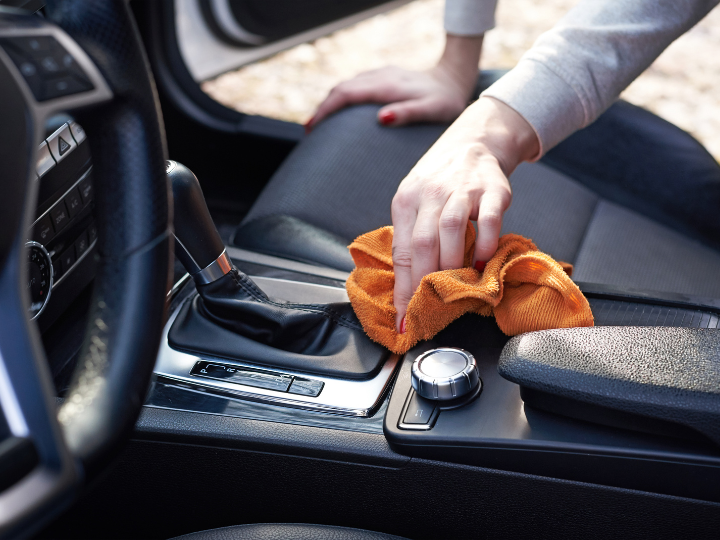What Is Full Coverage Auto Insurance?
Buying a new car is exciting for most people. Once you’ve made your purchase, the next step is taking care of this investment with the right car insurance brokerage that offers Full Coverage Auto Insurance.
It’s time to consider not only protection for the vehicle, but also who may be affected by it.
It’s easy to find out if full coverage auto insurance is right for you by calling your hometown broker at Duliban Insurance Brokers. Our large, knowledgeable staff is always ready to guide and assist you in any way that you may need, and to answer all of your car insurance questions.
What Determines Your Car Insurance Policy Coverage?
There is a wide variety of auto insurance coverage available to you, and every individual may have different needs and exposures.
Here some important questions to keep in mind when purchasing car insurance in Ontario:
- How old is your vehicle?
- What is the condition of your car or truck?
- Does your vehicle possess a higher value than its listed actual cash value?
- Do you drive for work?
- How many kilometers do you drive regularly?
All of these little factors, along with your driving record, go into calculating your recommended auto insurance coverage. That is why it’s important to identify and communicate all exposures that you may have so that you can be properly and accurately insured.
What’s in my Car Insurance Coverage?
All car insurance policies must be composed of 4 mandatory auto liability coverages in order to drive on the road.
These coverages are:
- Third-Party Liability
- Accident Benefits
- Direct Compensation Property Damage
- Uninsured Automobile
Third-Party Liability Coverage will cover you against any bodily injury or property damage that you may cause to someone else while driving your automobile.
Your accident benefits will pay for any medical expenses that you may incur due to an accident- regardless if you are at fault or not. Please also be aware that there was a major change to the limits in your medical coverages as of June 1, 2016, and it is imperative that you discuss the new options with your broker.
Direct Compensation Property Damage (also known as DCPD) will cover any damages that you are not at fault for causing to your vehicle. You cannot sue another party for a car accident in Ontario, so that is why your own policy responds when you are not at fault.
Uninsured Automobile coverage will cover you for any driver causing bodily injury or property damage to you and/or your vehicle if they are uninsured.
Car Insurance Coverages That Aren’t Required, But Recommended
If you look at your the details of your auto insurance policy coverage, you may notice you are paying for some of these coverages.
If your broker cares about their clients, they will take the time to explain what you are paying for. Sometimes these may not apply.
Collision
Your Collision coverage will protect you against damage caused to your vehicle by an accident for which you are at fault. The common deductible is $500.
A deductible is the maximum you would pay, before the insurance company would pay for any damages. This is determined by whatever deductible is listed on your policy.
Increasing the amount for the deductible will lower your overall insurance premium.
Comprehensive
Your Comprehensive coverage is affected by any other damage that might happen to your vehicle not caused by a collision. Some examples include: vandalism, glass breakage, and fire or natural disasters such as a tree falling on your car.
The common deductible for comprehensive coverage is $500 as well, but as stated before, every policy is different.
If you are thinking of having both coverages, All Perils is your best/cheapest choice.
All Perils
Having All Perils Coverage provides you with comprehensive, collision and an additional coverage for loss or damage if someone in your own household steals your vehicle.
All Perils is the combined coverage, with one deductible applying towards all. A common deductible for All Perils is $1000.
Most brokers will talk about these coverages while discussing your policy so you have a better understanding of what you are paying for. If you have more car insurance questions, they should have the answers you need.
It is not typical to add a lot of optional coverages to very low valued vehicles, but it is still available. Even if your vehicle is several years old, you would want to consider collision and comprehensive because it will still be costly to replace and repair. The deductible is your contribution towards the loss that occurred.
Removing Depreciation Deduction (OPCF 43)
This additional coverage is very important to have, as it pertains to new vehicles.
In case of a total loss of your vehicle, this coverage will ensure you receive the amount of the vehicle purchase price without depreciation. This coverage can be purchased for 24 to 48 months following your purchase date of the vehicle.
Loss of Use (OPCF 20)
This is a very common coverage to have in the event of a loss. It will pay for other means of transportation, like a rental vehicle, if your vehicle is damaged and in need of repair.
This coverage is subject to a certain limit that you purchase. You can buy various limits of this coverage, but a typical amount is $1,500. There is no deductible applied toward this coverage.
Legal Liability for Damage (OPCF 27)
There is an opportunity to have your loss or damage coverage (Collision/Comprehensive/All Perils) extend to a non-owned vehicle, such as a rental car. This is known as OPCF 27 Legal Liability For Damage To Non-Owned Automobiles.
It will cover you in Canada or in the United States for a temporary period while you are renting, subject to a limit. A common limit to purchase for this coverage is $50,000.
This endorsement will eliminate you having to buy car insurance coverage from the rental company instead.
Accident Waiver
You have to meet certain qualifications in order to obtain this coverage, and it varies depending on the insurance company. It will protect your driving record if you have your first at fault accident.
An accident can be rated for (count against you) on your policy for the next 6 years. Some insurance companies can even rate for up to 9 years for an at fault accident. That’s why it is great to have your coverage forgive this loss.
Family Protect Endorsement (44R)
This coverage will respond if you and/or members of your family or occupants of your vehicle are injured by someone who is either uninsured or underinsured. This coverage will allow you access to the same limits on your policy, regardless of what the other person carries on theirs.
Once your policy is comprised of these compulsory coverages, it is optional to obtain more coverage from here. This is a highly recommended coverage to have on your policy.
Talk to Your Hometown Broker For More on Your Car Insurance Policy Coverage
As you can see, there are many options in making up an automobile insurance policy in Ontario. That’s why it’s important to talk to your local insurance broker about the options best suited for you.
We at Duliban Insurance Brokers care about our customers and always take the time to explain optional coverages to you. Our team is ready to answer your car insurance questions and give you as much information as we can.
Call Duliban Insurance Brokers today at 1-855-DULIBAN (385-4226) to discuss the auto insurance coverage levels that are available for you!











